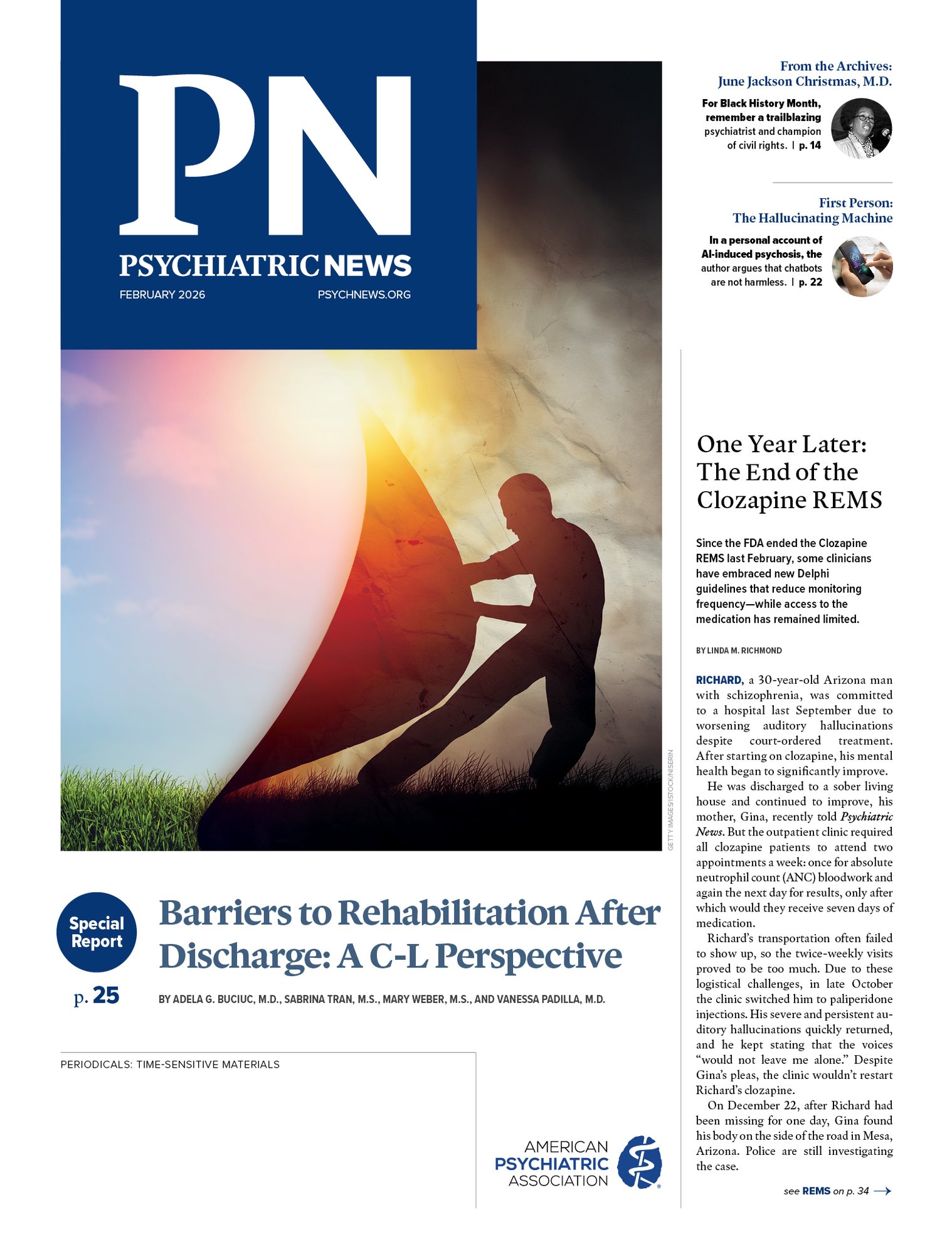Most adolescents referred to child protective services (CPS) for parental neglect experience behavio...
Individuals with psychotic disorders could receive long-acting injectable antipsychotics (LAIAs) at ...
Your morning cup o’ Joe can do more than wake you up: A new long-term study issued in JAMA finds hig...
APA Election Results: Rahn Bailey is Next President-Elect Rahn Kennedy Bailey, M.D., an assistant de...
The male-to-female ratio of autism spectrum disorder (ASD) may be more equal than commonly believed,...
Socially isolated older adults who received one of two brief, telephone-based psychosocial intervent...
A 52-week open-label trial of antipsychotic Cobenfy (xanomeline-trospium chloride, X/T) found that p...
On Tuesday, Congress passed a $1.2 trillion spending package for fiscal year 2026 that maintained or...
Aggressive obsessions—intrusive thoughts of intentionally or unintentionally harming oneself or othe...












